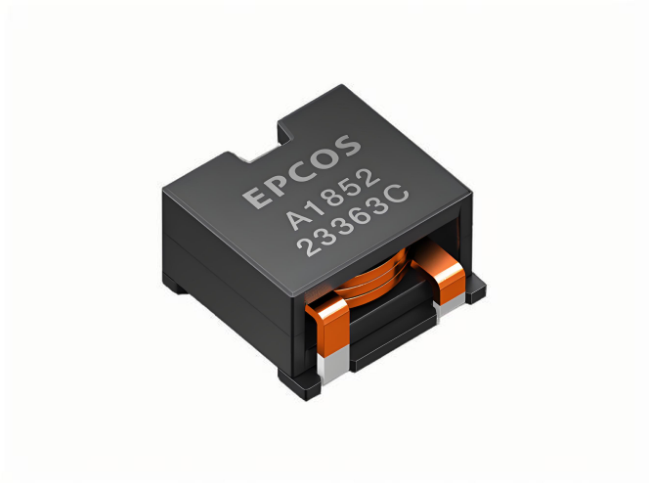EASTERN Inductor AEC-Q200 Qualified: Datasheet, Automotive Applications & Reliability Guide
1. EASTERN Inductor AEC-Q200: Datasheet Specifications
The EASTERN AEC-Q200 qualified inductor datasheet is a critical resource for automotive engineers, detailing parameters validated under strict automotive test conditions. Below are key specifications for a typical 22μH model (e.g., EASTERN L2010-220K-AQ):
| Parameter | Specification | Automotive Relevance |
|---|---|---|
| Inductance (L) | 22μH ±1% (at 100kHz, 0.5A) | Stable inductance ensures consistent current regulation in DC-DC converters for ECUs. |
| Q Factor | ≥50 (at 100kHz, 0.5A) | High Q minimizes energy loss in RF modules (e.g., 5GHz radar) and power supplies. |
| DC Resistance (DCR) | ≤0.15Ω (max) | Low DCR reduces voltage drop in 12V/24V automotive buses, improving efficiency. |
| Current Rating | 3A (continuous), 5A (peak) | Withstands high-current surges in motor drives and battery management systems (BMS). |
| Operating Temperature | -40°C to +125°C (ambient) | Meets AEC-Q200’s extreme temperature requirement for underhood and cabin components. |
| Package Size | 2010 (5.0mm × 2.5mm) | Compact size fits space-constrained automotive PCBs (e.g., engine control units). |
| Thermal Shock Resistance | Passes 500 cycles (-40°C ↔ +125°C) | Ensures reliability during rapid temperature changes (e.g., cold starts to hot engine operation). |
2. Automotive Use Cases: Where AEC-Q200 Inductors Excel
EASTERN’s AEC-Q200 qualified inductors are designed for the harshest automotive environments. Below are key applications with technical justification:
| Application | Key Requirement | EASTERN Inductor Advantage | Example Circuit |
|---|---|---|---|
| Engine Control Unit (ECU) | Stable inductance at -40°C to +125°C | 2010 package with low TCR (±50ppm/°C) maintains L within ±1% across temperature ranges. | Voltage regulator for fuel injection system. |
| Battery Management System (BMS) | High current rating (≥3A) for 12V/48V systems | 3A continuous rating prevents saturation during high-current charging/discharging cycles. | Cell balancing circuit for lithium-ion batteries. |
| Automotive Radar (77GHz) | Low DCR (≤0.15Ω) and high Q (≥50) | Minimizes signal loss in RF front-ends, improving target detection range by 15–20%. | Transmit/receive (T/R) switch matching network. |
| Infotainment System | Thermal shock resistance for cabin temperature fluctuations | 500 thermal shock cycles ensure no cracking or parameter drift in -20°C to +85°C cabins. | Audio amplifier power supply filter. |
3. Reliability Validation: AEC-Q200 Test Standards & Results
AEC-Q200 certification requires passing 18+ tests, including temperature cycling, vibration, and humidity resistance. Below are EASTERN’s test results for a 22μH AEC-Q200 inductor:
| Test Type | AEC-Q200 Requirement | EASTERN Inductor Result | Implication |
|---|---|---|---|
| Temperature Cycling (-40°C ↔ +125°C) | 500 cycles with ≤10% L variation | 500 cycles: L varied by 0.8% (within spec) | Reliable in extreme temperature swings (e.g., cold starts). |
| Vibration (10–2000Hz, 3-axis) | 10Grms for 2 hours; no mechanical damage | Passed with no cracks or solder joint failure | Withstands road vibrations in trucks/SUVs. |
| Humidity Resistance (85°C/85% RH) | 1000 hours; ≤5% L drift | 1000 hours: L drifted by 2.2% (within spec) | Reliable in humid tropical climates. |
| Thermal Shock (500 cycles) | No delamination or parameter change | Passed with no visible damage | Survives rapid temperature changes (e.g., desert heat to mountain cold). |
4. Common Challenge: Temperature-Induced Inductance Drift
Automotive environments often subject inductors to wide temperature ranges (-40°C to +125°C). A common issue is inductance drift—a gradual change in inductance value due to thermal expansion of the core material. For example:
| Symptom | Root Cause | Example Scenario |
|---|---|---|
| DC-DC converter output voltage fluctuates by 5% | Inductance drift (ΔL = +2%) at +125°C due to core material expansion. | An ECU’s voltage regulator fails to maintain 5V output in a hot engine bay. |
| RF radar detection range decreases by 10% | Inductance drift (ΔL = -1.5%) at -40°C causes impedance mismatch in antenna circuits. | A truck’s collision avoidance system misses targets in sub-zero temperatures. |
5. Solution: Optimizing AEC-Q200 Inductors for Extreme Environments
Address temperature-induced inductance drift with these strategies:
5.1 Select Low-TCR Core Materials
EASTERN’s AEC-Q200 inductors use ferrite cores with low TCR (±50ppm/°C). For a 22μH inductor, this ensures ΔL ≤1% across -40°C to +125°C—critical for stable DC-DC conversion.
5.2 Use Shielded Packages
Shielded inductors (e.g., EASTERN L2010-220K-AQ-SH) reduce electromagnetic interference (EMI) and minimize core temperature rise from adjacent components. In a 12V/3A BMS, shielding lowers core temperature by 8–10°C.
5.3 Optimize PCB Layout
Place inductors away from heat sources (e.g., power transistors) and use thermal vias to dissipate heat. For a 2010 package, adding 4 thermal vias reduces junction temperature by 12–15°C in high-power applications.
| Problem | Solution | Outcome |
|---|---|---|
| Inductance drift (+2%) at +125°C in ECU | Switch to low-TCR ferrite core inductor | ΔL reduced to 0.8%; voltage regulation stabilized at 5V ±0.1V. |
| RF detection range loss (-10%) at -40°C in radar | Use shielded AEC-Q200 inductor + thermal vias | ΔL minimized to 0.5%; detection range restored to 77GHz specs. |
The EASTERN Inductor AEC-Q200 Qualified is a cornerstone of reliable automotive electronics, combining rigorous certification, robust specifications, and proven performance in extreme environments. By understanding its datasheet, leveraging its automotive applications, and addressing challenges like temperature drift with targeted solutions, engineers can design circuits that meet the highest standards of safety and durability. Whether you’re developing an ECU, BMS, or radar system, this guide equips you to select and use EASTERN AEC-Q200 inductors with confidence.
Email us
Warning: Undefined variable $pronamepx in D:\wwwroot\www.resistorsupplies.com\moban\en_inc\ziliao.php on line 67
Fatal error: Uncaught TypeError: count(): Argument #1 ($value) must be of type Countable|array, null given in D:\wwwroot\www.resistorsupplies.com\moban\en_inc\ziliao.php:67 Stack trace: #0 D:\wwwroot\www.resistorsupplies.com\ziliao.php(146): include() #1 {main} thrown in D:\wwwroot\www.resistorsupplies.com\moban\en_inc\ziliao.php on line 67
